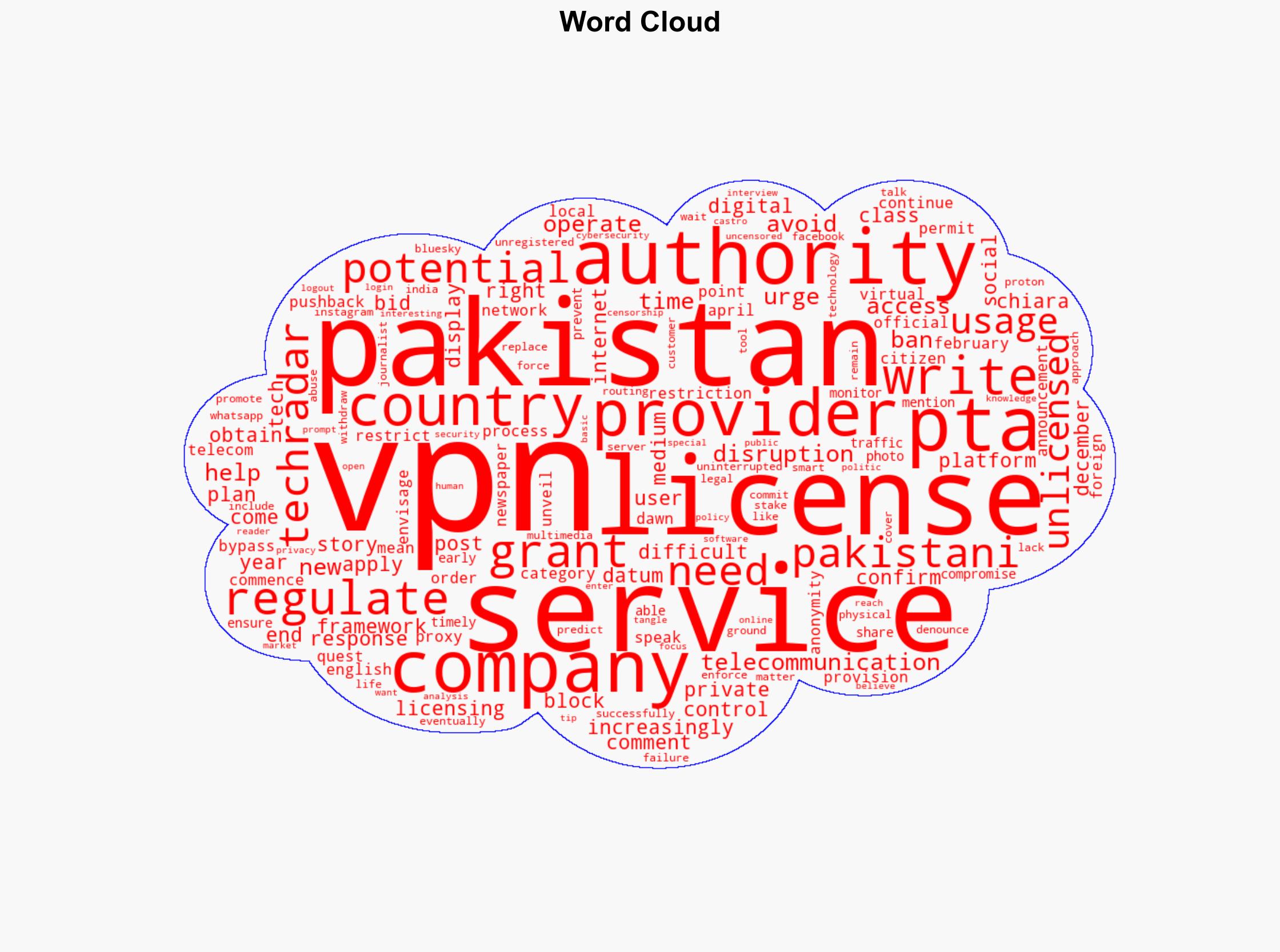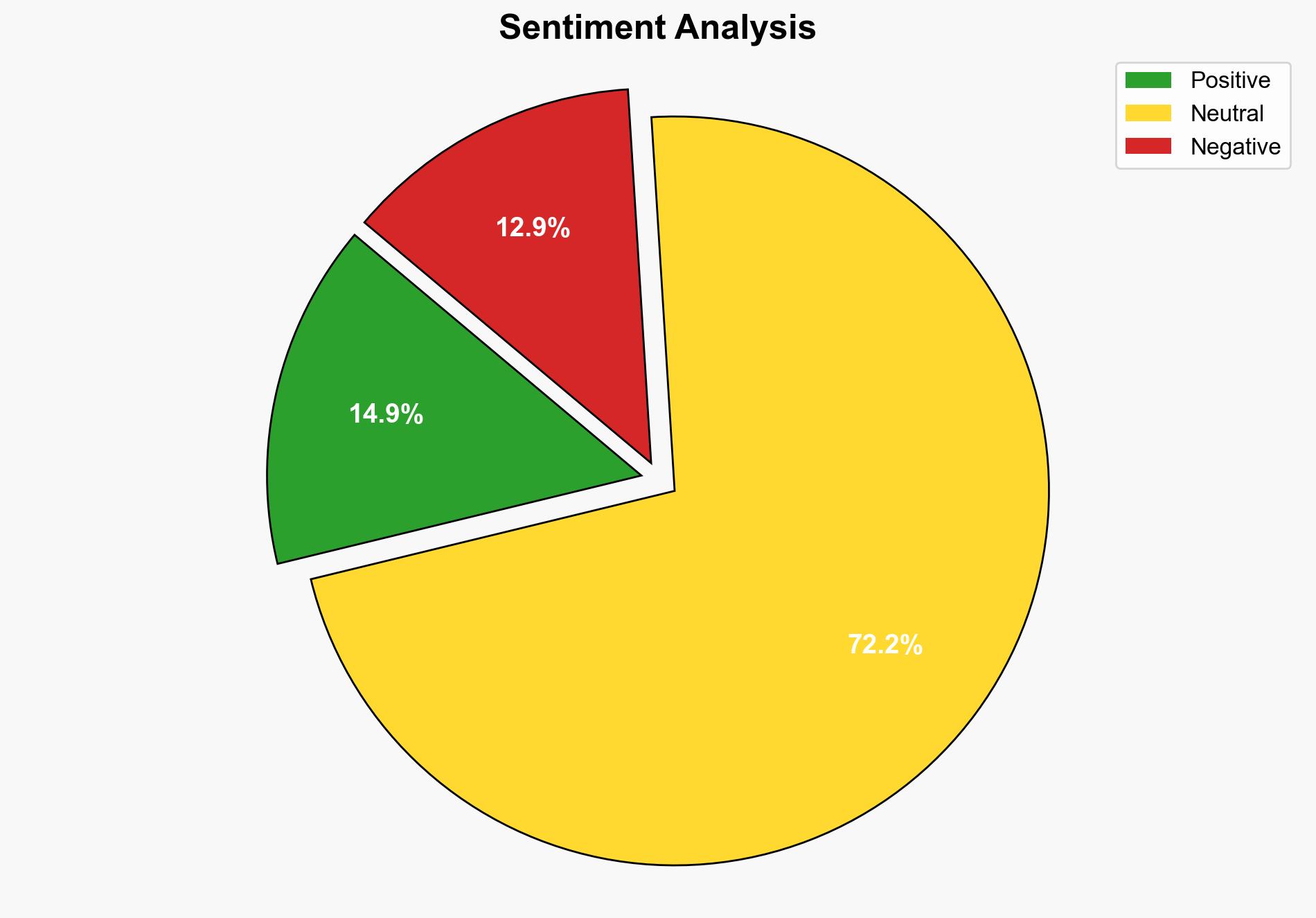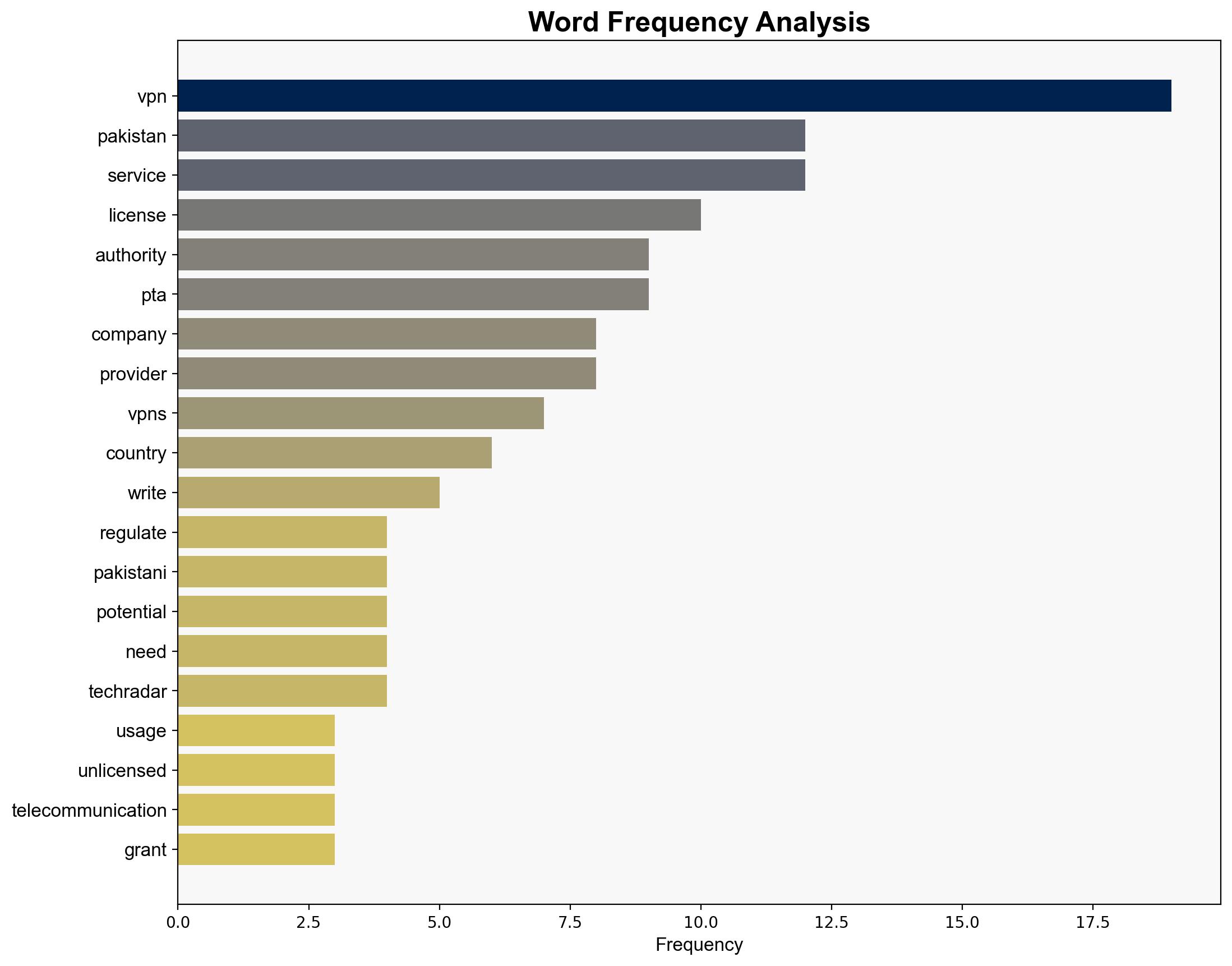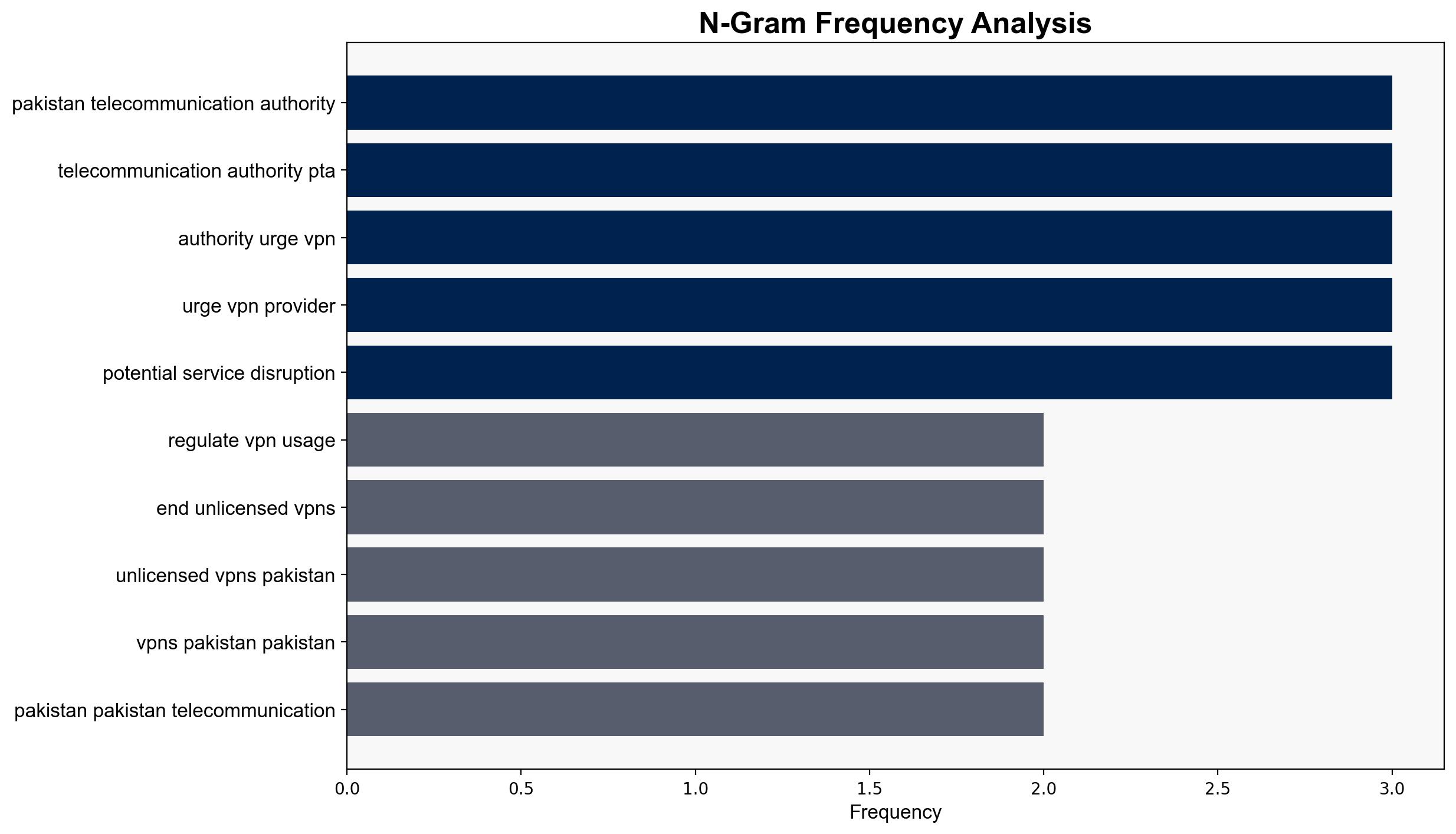Pakistan grants first VPN licenses in a bid to regulate VPN usage in the country – TechRadar
Published on: 2025-04-22
Intelligence Report: Pakistan Grants First VPN Licenses in a Bid to Regulate VPN Usage – TechRadar
1. BLUF (Bottom Line Up Front)
Pakistan has initiated a regulatory framework for VPN usage by granting licenses to VPN service providers, aiming to control unlicensed VPNs and monitor internet traffic. This move is intended to prevent service disruptions and ensure compliance with national regulations. The strategic implications include enhanced government oversight of internet usage, potential impacts on digital privacy, and the possibility of increased control over information flow within the country.
2. Detailed Analysis
The following structured analytic techniques have been applied to ensure methodological consistency:
SWOT Analysis
Strengths: Increased regulatory control over VPN services; potential reduction in illegal activities online.
Weaknesses: Possible infringement on digital privacy; challenges in enforcing regulations on foreign VPN providers.
Opportunities: Development of a regulated digital environment; potential for local VPN industry growth.
Threats: Pushback from privacy advocates; potential for circumvention through alternative technologies.
Cross-Impact Matrix
The regulation of VPNs may influence regional cybersecurity dynamics, with potential spillover effects on neighboring countries’ internet policies. The interplay between national security measures and individual privacy rights could lead to increased tensions or cooperation in cybersecurity initiatives.
Scenario Generation
Best Case: Successful regulation leads to a secure and compliant digital environment, fostering economic growth.
Worst Case: Overregulation stifles innovation and leads to international criticism and loss of digital freedoms.
Most Likely: Gradual adaptation by VPN providers to comply with regulations, with ongoing debates over privacy.
3. Implications and Strategic Risks
The regulatory framework could lead to increased government surveillance capabilities, raising concerns about digital rights. There is a risk of creating a precedent for other countries to impose similar restrictions, potentially affecting global internet freedom. The balance between national security and privacy remains a critical issue.
4. Recommendations and Outlook
- Encourage dialogue between government authorities and digital rights organizations to address privacy concerns.
- Monitor the implementation of the licensing framework to assess its impact on internet freedom and economic activity.
- Scenario-based projections suggest that ongoing adjustments to the regulatory approach may be necessary to balance security and privacy.
5. Key Individuals and Entities
Chiara Castro (TechRadar journalist)
6. Thematic Tags
(‘national security threats, cybersecurity, counter-terrorism, regional focus’, ‘cybersecurity’, ‘counter-terrorism’, ‘regional focus’)





